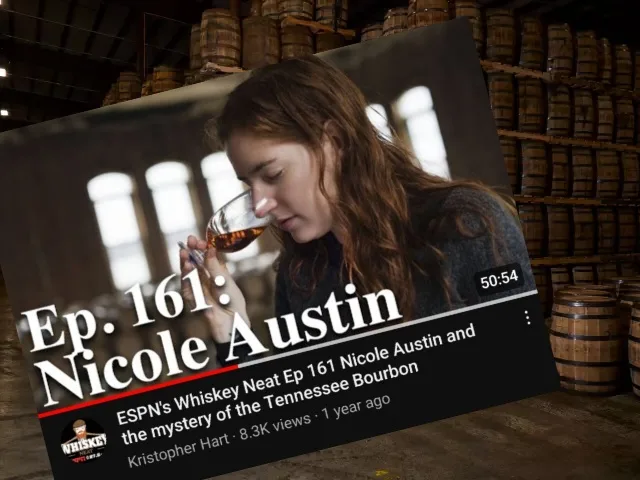| Don't like ads? | No ads |
Love it or hate it, there’s no denying that George Dickel Tennessee Whiskey is a brand in the throes of re-inventing itself. This has everything to do with Nicole Austin and her “cut the bullshit” approach that she takes. This is refreshing and necessary to a brand owned by Diageo – a company famous for withholding information on anything and everything.
Nicole won’t play those kinds of games. In fact, with each passing year and each interview she’s involved in, she gives us more information that brings more clarity to the many rumors and falsities regarding the brand.
This is not an opinion piece on if people should or shouldn’t like George Dickel Tennessee Whiskey. If you like the whiskey, that’s awesome. I do too. If you don’t, I get it too. This piece isn’t designed to change your mind but to maybe make you care a little bit that Dickel seems destined for big changes in the near future.
What I’m here to do is dissect this interview that Nicole did with Whiskey Neat’s Kristopher Hart from over a year ago. Let me just tell you that this is a video I suggest you actually listen to all the way through. This is what a real interview should look and sound like. The questions were readied beforehand, the banter is fast-paced and her answers are candid and full of insightful tidbits. I don’t even know who Kristopher Hart is, but I like his style. There seems to be a flood of wannabe whiskey review nerds with no public speaking ability and to hear this banter is a breath of fresh air.
So without further ado, here are some of the more informative bits of information that gets covered.
There has been and continues to be whiskey that was made at Cascade Hollow that has not gone through the Lincoln County Process.
This is fascinating to hear because every interview and publication prior to this interview has staunchly said that every drop of whiskey distilled at George Dickel goes through the Lincoln County Process. As soon as it comes off the still, it is chilled down to 40 degrees and fed through stacks of sugar maple charcoal a few feet thick. It is then collected at the bottom and put into barrels. The chilling process induces flocculation – which is basically causing fatty acids in the distillate to clump together. This helps them to get trapped in the charcoal. This process is supposed to make the whiskey more mellow, but removing those compounds can also strip a little bit of flavor from the final product.
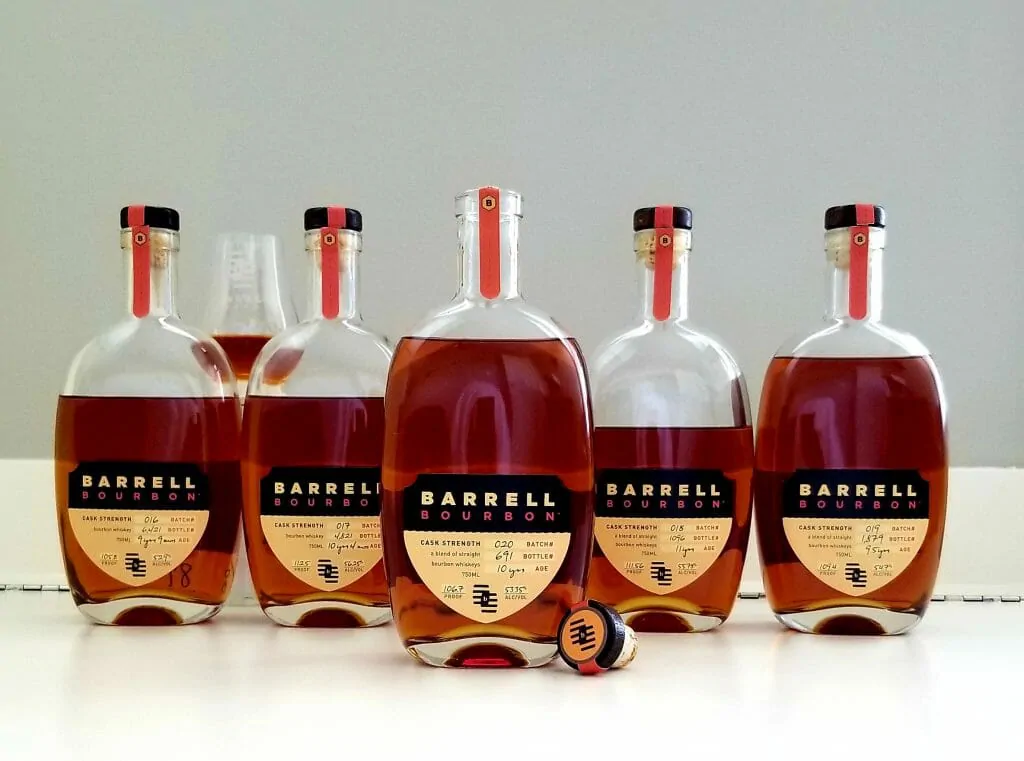
I’ve always wondered what George Dickel would taste like if it wasn’t ran through those stacks of sugar maple charcoal. I bet we’d see much more intense, robust flavors that had previously been filtered out. I think we’d also see more oak influence, leading to a whiskey with more character. I would give anything to know where that bourbon went to that didn’t get filtered too. I simply must try it.
Nicole confirms that Dickel Rye is charcoal filtered POST-maturation
Chuck Cowdery reported that Dickel Rye was distilled and aged in Indiana. After it was fully matured, the rye whiskey was dumped into tanker trucks and sent to the Plainfield, Illinois Diageo facility where it went through the Lincoln County Process, except in reverse! So they filtered whiskey that was already matured back through sugar maple charcoal. Even more interesting is that it proves once and for all that Dickel Rye (at least the 90 proof green label) never steps foot in the state of Tennessee before being was bottled.

Dickel’s website told a story years ago that was counter to that claim. They claimed it was filtered after distillation and aged in Indiana (I tried to take a screenshot of it from the Wayback Machine, but couldn’t get it to load). I knew this was wrong because of a contact at MGP telling me that they couldn’t say any specifics regarding customers they had, but that there was no equipment at their distillery that was designed to filter the whiskey through sugar maple charcoal.
Finally, after all of these years, hearing it straight from Nicole herself should set the record straight once and for all.
An explanation why George Dickel 15 Year Old Single Barrels are bottled at 7 preset proof points
People with a keen eye for patterns may have noticed that the 15 year old single barrels that George Dickel releases are bottled at seven preset proof points. They are 40.0% (80 proof), 42.2% (84.4 proof), 46.7% (93.4 proof), 48.1% (96.2 proof), 50.4% (100.8 proof), 50.6% (101.2 proof) and 52.3% (104.6 proof).
Does that mean they are barrel proof? No, they’re not. But they’re close. The way Nicole explains it, she had a choice. She could request the expensive process of hand-labeling each individual barrel’s actual proof OR proof down barrels ever so slightly to a set number; allowing labels to be printed en masse and saving money.
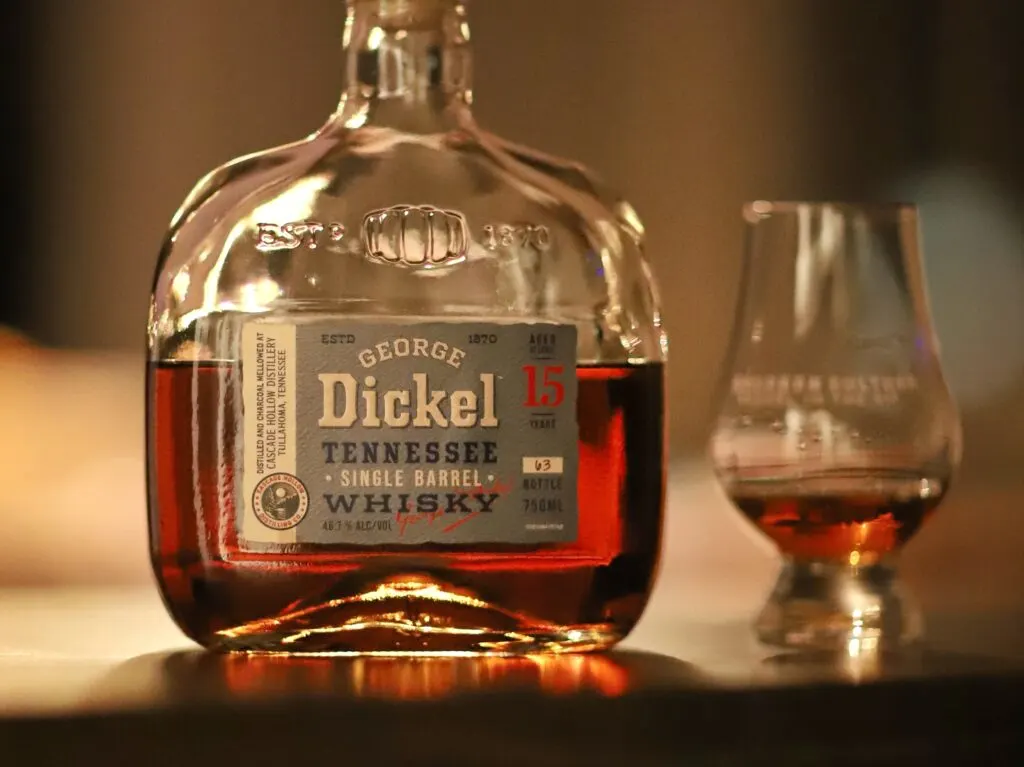
She said that when they were pulling these old barrels from the warehouse, that she noticed they were all very low in proof – usually between 80 and 105 proof. They get split up into 7 groups and have a minimal amount of water added in until they achieve one of those proofs. You have to remember that Dickel goes into the barrel at 115 proof and the single-story warehouses will usually result in barrels losing proof over time, not gaining it.
Dickel isn’t taking a 125 proof bourbon and proofing it down to 80 or 93.4 proof, it’s already near those levels to begin with. In the future, she might decide to do a full-on barrel proof program, but now that we know this, why bother?
Nicole took over as the Master Distiller at Cascade Hollow in March 2018. She says that the whiskey she started to make (including her own experiments) is very close to being released.
This requires reading between the lines a little bit, but we know that George Dickel has been pretty tight-lipped about anything produced outside of their typical 84/8/8 recipe. When Cascade Moon was released in 2019, the weird experiments were finally able to see the light of day. Now that Nicole has admitted this, what more can we expect? New mash bills? New whiskey styles? New barrel experiments? The possibilities have me salivating with anticipation.
The oldest barrels currently in her warehouses right now are 18 years old.
It was a weird question and one not many distilleries want to answer, but Nicole said that the oldest barrels she had access to at Cascade Hollow were soon turning 18 years old. However, this review was done in early 2022, meaning they are 18 years old right now. This makes perfect sense because 2 months ago, Diageo filed this new label to the TTB. Also, notice that the word “Bourbon” is used. Hell. Yeah.
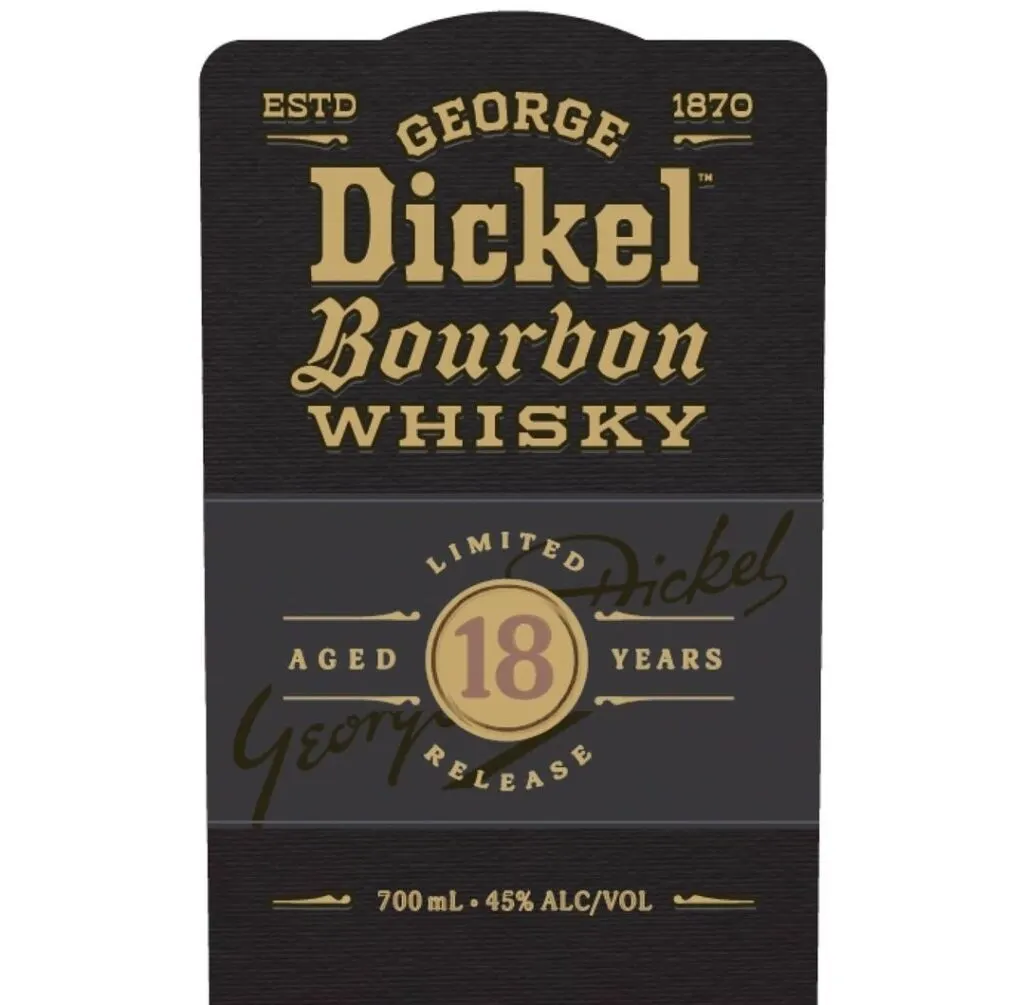
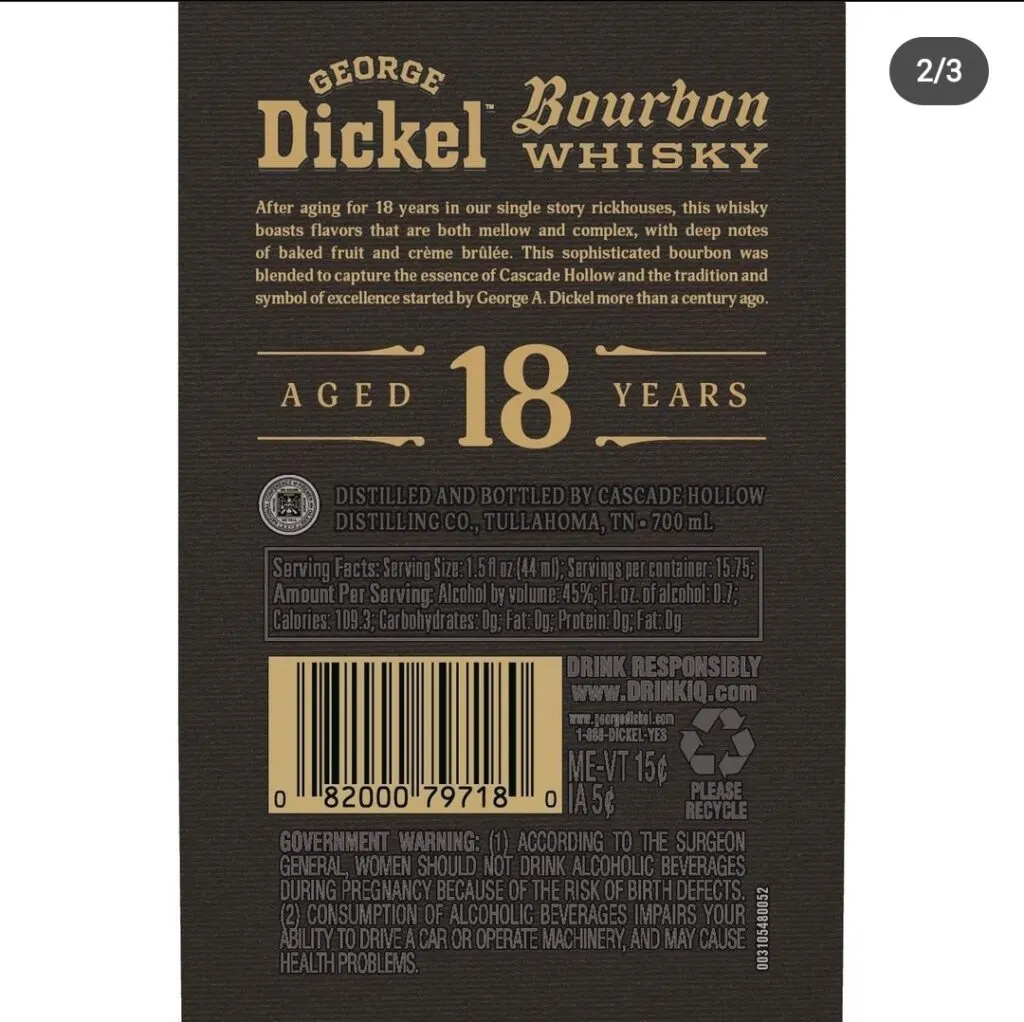
Kristopher Hart points out that Tennessee Whiskey laws do not have any wording that say that additives cannot be used. He then subtly pokes Nicole into acknowledging if Dickel has ever used any additives in their whiskey
Nicole shoots down this assumption by saying they have never used any additives in their whiskey. She also says that she has never heard of any of the other “major” Tennessee Whiskey makers doing that either. She does not see this becoming something they take advantage of in the future.
Nicole claims the idea to finally use the word “BOURBON” on a label of George Dickel was hers.
Kristopher Hart points out that the debate of “Is Tennessee Whiskey a Bourbon?” isn’t meant to be a question looking for an answer. It’s meant to keep the conversation alive to keep Tennessee Whiskey brands in the spotlight – which benefits sales.
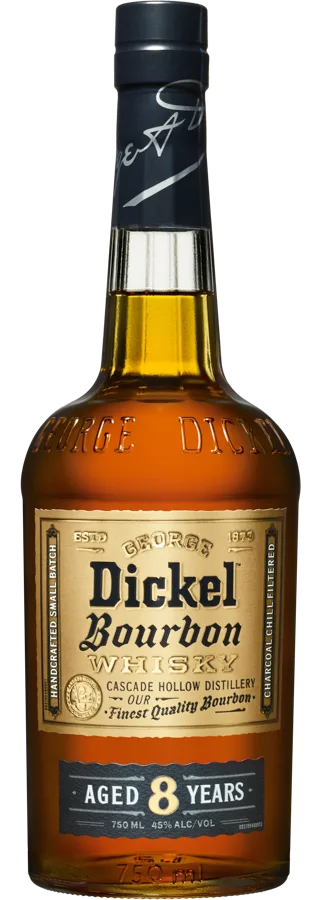
Nicole was tired of hearing about this debate argued over and over, so she decided to put the word bourbon on the label. She said that she encountered surprisingly little pushback to the idea by her bosses. The most important thing she wants us to know is that Dickel 8 Year Bourbon is not a different recipe and doesn’t use any different kinds of techniques to mature it. And yes, it still undergoes filtration through the Lincoln County Process. It’s the exact same thing as George Dickel #8, #12 or Bottled in Bond.
The reason she calls this a bourbon is because she found that certain barrels that were pulled from her warehouses exhibited such a different profile when they were done maturing. What should have tasted like a Tennessee Whiskey instead tasted like a more traditional Kentucky bourbon.
Nicole makes one more interesting note that we should all keep in mind: there has been lots of barrels made at Cascade Hollow that have been sold to other brands who have then went on to label them as bourbon. They are aware they’ve gone through the Lincoln County Process but know that does not strip them of meeting all of the regulations to be called a bourbon. It just goes to show the silliness of the whole debate when there’s been producers doing this for over a decade now. George Dickel and Jack Daniel’s really are bourbons.
Featured Products
- Neat Traveler

- View Larger
- Description:The Aged & Ore Neat Traveler is a complete travel kit for spirits. We combined our widely praised Neat Glass with one of our 3oz Flight Bottles and housed them together in a custom EVA travel case. Perfect for a night away with your favorite pour. The tie
- Bottle Flight
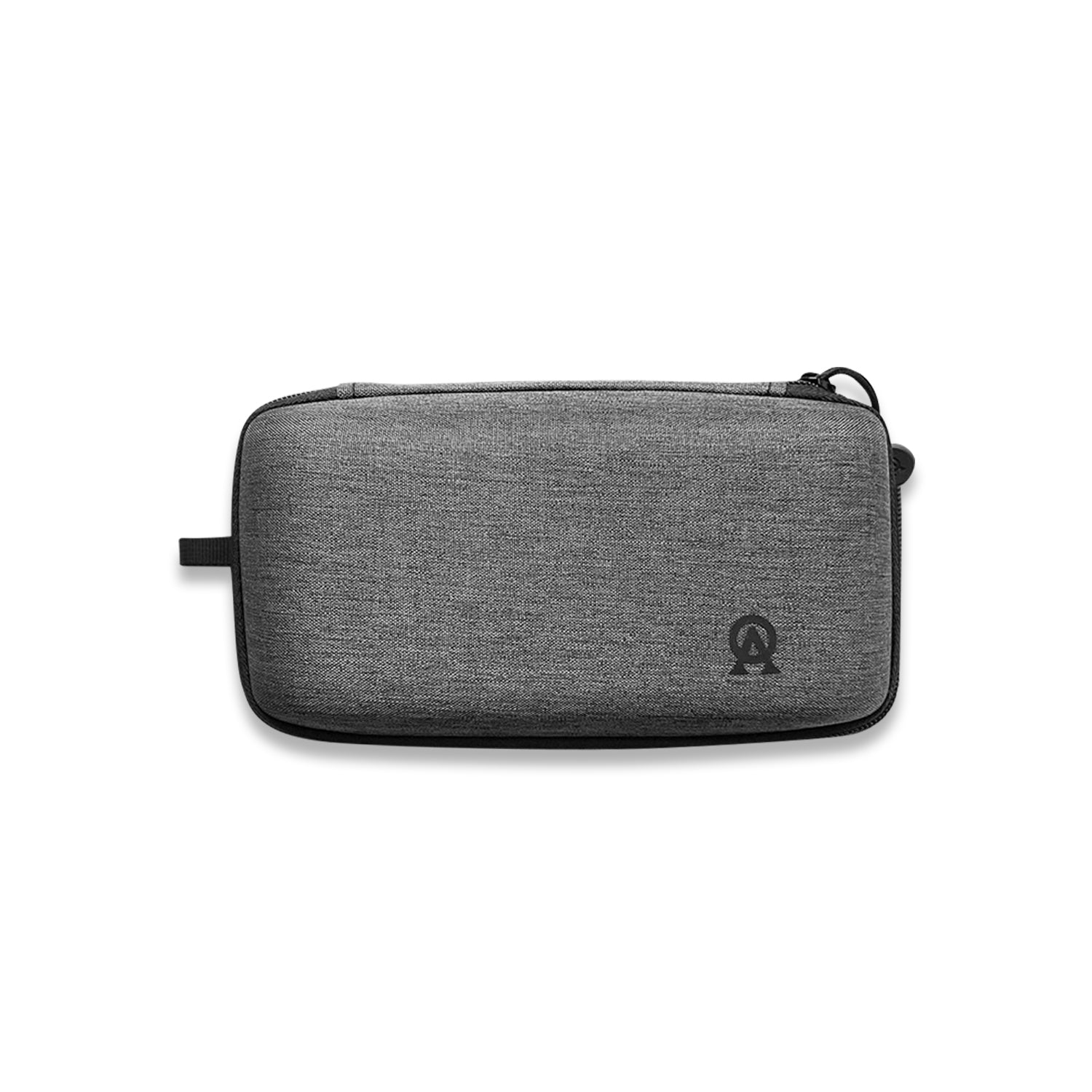
- View Larger
- Description:The Aged & Ore Bottle Flight is a premium set of 4 custom silicone wrapped glass bottles designed to transport and share samples of your favorite spirits. The flight bottles come in a custom EVA travel case that fits perfectly in any small bag. An Aged &
- Travel Bundle
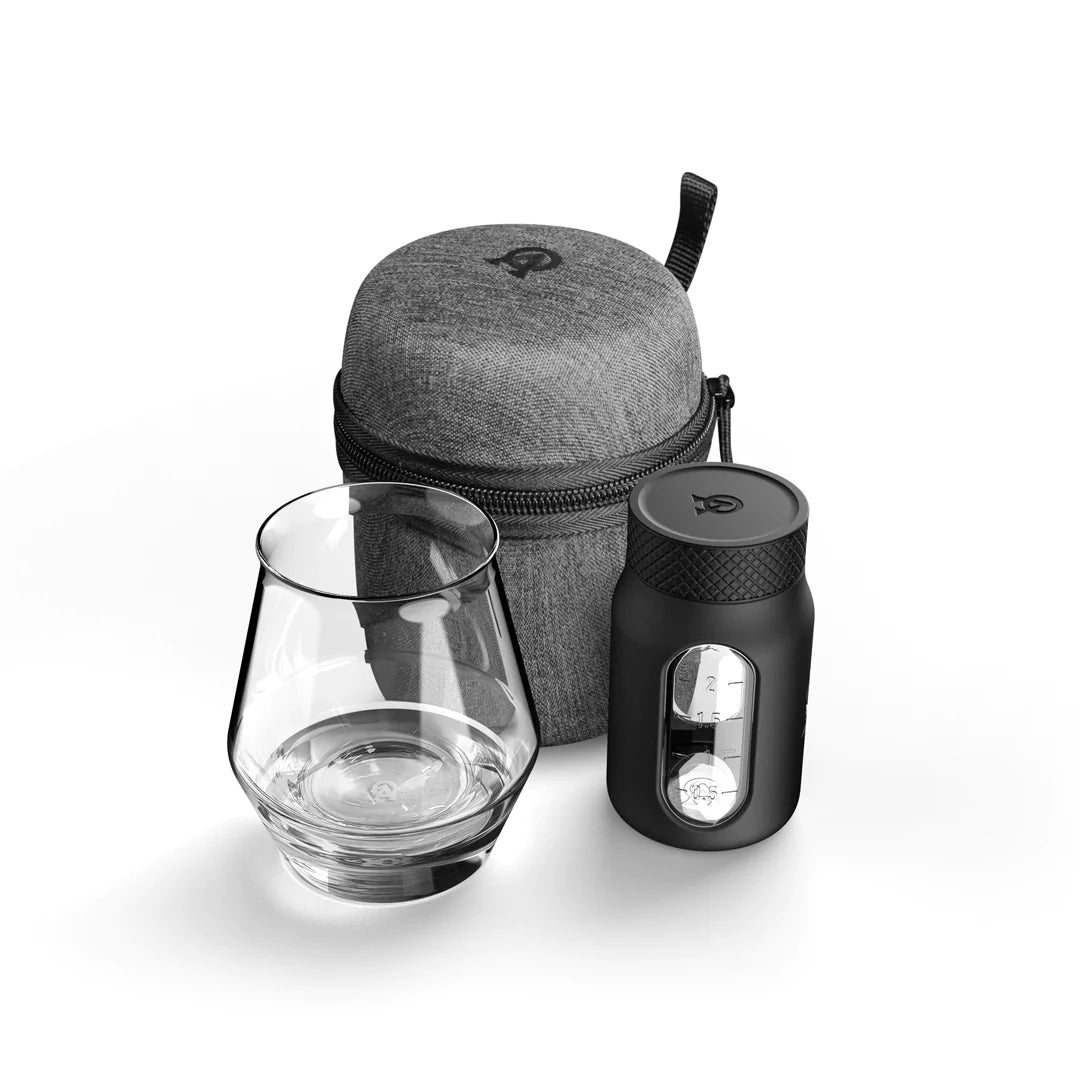
- View Larger
- Description:This Bundle combines two of our crowd favorite products, creating the ultimate travel bundle to bring along your favorite spirits and glassware. Bundle Includes: Neat Traveler (Gray) Bottle Flight (Gray) Note: This bundle is only available in gray and col
*Bourbon Culture is reader-supported. When you buy through links on our site, we may earn an affiliate commission.

